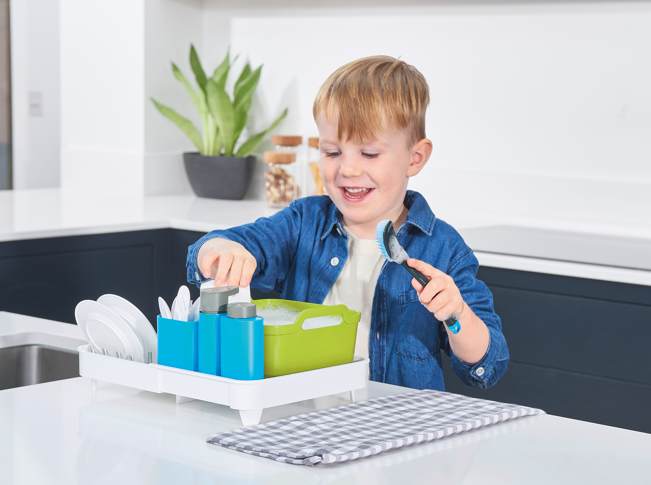Watching children play can be so entertaining as they reenact the world around them. It’s a great way to see the world through their eyes and get an insight in to their understanding of their surroundings. It can also be a real eye opener when it comes to watching them repeat phrases you know they have heard you say time and time again and act in a way that mimics you. Yet, despite all of this, role play isn’t always encouraged and for some children it doesn’t come naturally, especially for those that spend most of their time alone, or in the company of adults, which is why it is important for us as adults to understand the benefits of role play for children and actively encourage it when possible.
The benefits of role play
There are a number of benefits of role play for children, here are some of the most important ones:
Social Skills
Role play allows children to practice interacting with others, taking on different roles, and understanding social dynamics. They learn how to negotiate, cooperate, and communicate effectively with their peers whilst playing but also practise the different ways we interact with others too, such as those in positions of power, strangers and family members. Even the art of playing will help them develop their social skills further, things like turn taking, listening to others and sharing.
Language and Communication Skills
Through role play, children use language in meaningful contexts. They expand their vocabulary, practice articulating thoughts and ideas, and learn to express themselves more clearly. They can create opportunities where they can safely use words they have heard but not had a chance to use like medial expressions when playing Dr’s or vets, religious phrases when reenacting Sunday School or talking about money when playing shop keepers.
When children are involved in role play they will use their imagination to create different scenarios, characters, and outcomes. By working with others in role play they will be able to add their own ideas to those of others and get more and more creative and imaginative as the game goes on.
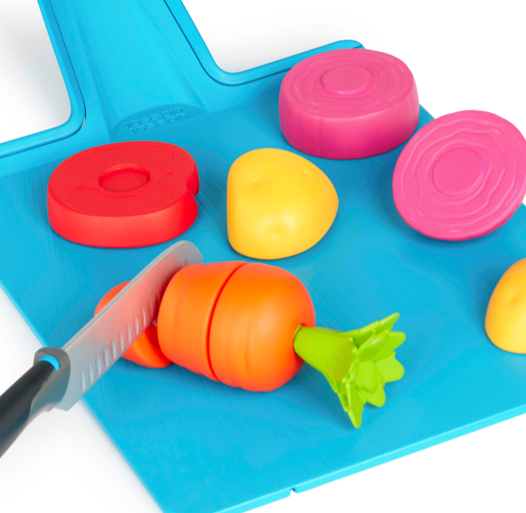
Problem-Solving Skills
Role play presents children with scenarios where they must think critically and solve problems. They learn to think on their feet, make decisions, and adapt to changing circumstances. They may pretend there is an issue that needs fixing like a broken pipe, lost dog or hungry child and together they will create new characters that can help fix the issues. Role play is a perfect example of how to make learning fun for children.
Empathy and Emotional Development
Role play is brilliant for helping children develop empathy. When they are taking on the role of someone else they can start to imagine the feelings and perspectives of that particular character, something children can find hard to do at a young age.
Confidence
Taking on the role of someone else allows a child to be more confident because it isn’t their actions, behaviours and suggestions that are necessarily being judged by the other children. It also allows those children that are normally quiet and shy the chance to shine if they have a clear role such as playing a teacher in schools and the more they practice the more confident they will get.
Additionally, role play can help build a child’s confidence with specific tools. If they are nervous about feeding themselves or baking with heir caregivers practising with toys can help build their fine motor skills and confidence for when they need to do it for rel.

Understanding of the World
Role play allows children to explore and make sense of the world around them. It is also a great way to teach your child about different things such as careers, cultures and religions.
Role play can be used by teachers and parents to help children develop all of the above. It can be used in a general sense or more specifically if you have a child with an area that needs supporting.
Charlotte Stirling Reed is a child nutritionist and she strongly believes that role play can be used to bring enjoyment to meal times, which we all know can be some of the most stressful times of the day.
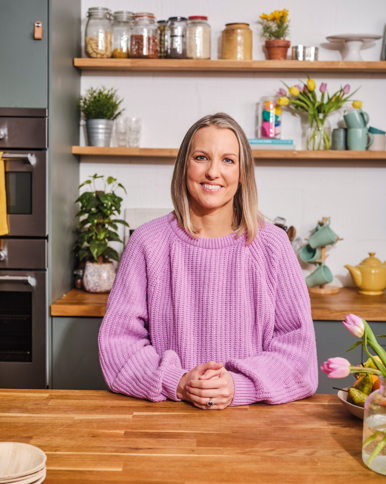
“Kitchen role play is an exciting and fun activity, which helps to expand the imagination and enhances creativity for little ones. It gives children the power to create their own imaginative recipes and explore a range of pretend ingredients.
Children often go through ups and downs of food acceptance, which is perfectly normal, especially in the toddler years. But one of the ways you can help encourage a lifelong enjoyment of foods is by offering plenty of ways for little ones to learn about, explore and engage with foods WITHOUT actually eating them. This helps to build familiarity with the skills needed to make and prep foods, as well as with the foods themselves and we know from research that familiarity often leads to acceptance.
So, I’m a big advocate of bringing food and the idea of food prep, mealtimes and eating experiences to children’s play – a time when they are often more open, excited and accepting. This is why I love the Casdon range of food roleplay items. These items are so realistic that they really help children to role-play at a really deep level, clicking the right buttons, hearing the right sounds and doing the right actions needed to make a coffee or prep salad for example.“
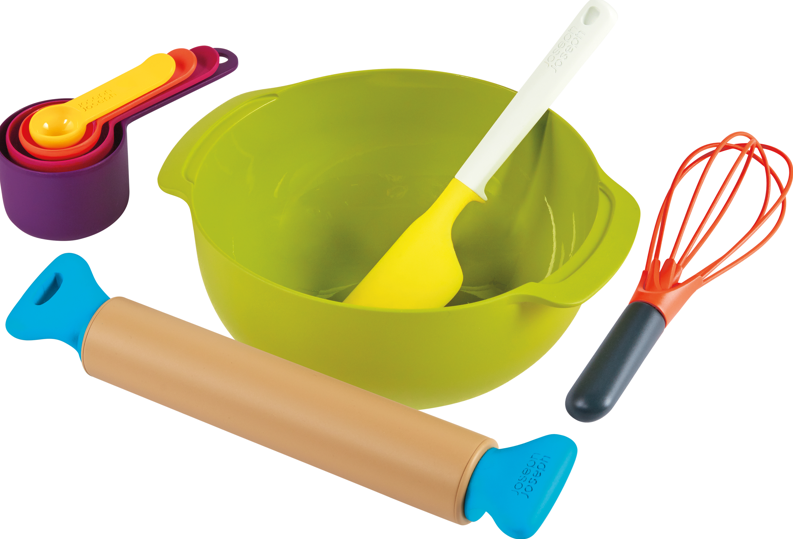
The Casdon range that Charlotte refers to are also a favourite of ours too. They have a great selection of toys that are gender neutral which I think is really important to prevent those gender specific roles slipping in. Not only that but all the toys are bright and colourful, inviting an exciting and above all else, they are safe to play with as they experiment.
Some of the toys even allow for a more realistic experience such as the joseph joseph extend pictured below that not only allows your child to incorporate the idea of washing up in their role play but actually allows them do so with water accessible from the tap.
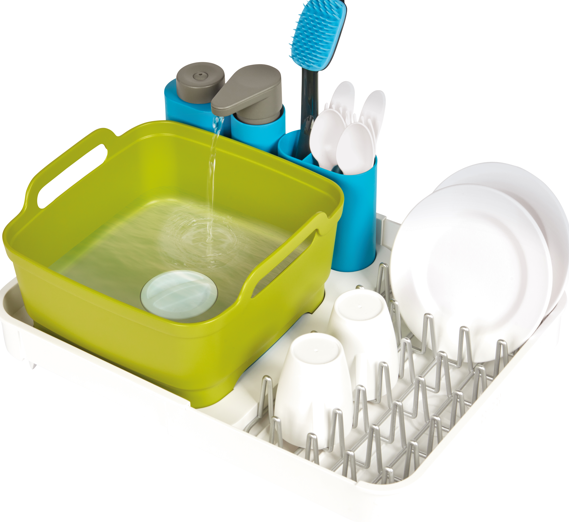
Using kitchen based role play toys can really help your child become familiar with what is needed when cooking, eating and washing up so that once they are able to they can join in for real with ease and confidence.
If you have a child then do watch them next time they play and see how easily role play comes to them. If it doesn’t flow naturally then try and help them by asking questions about what they are doing, taking on the role of a character and presenting them with opportunities where decisions need to be made and providing them with some realistic role play toys.
